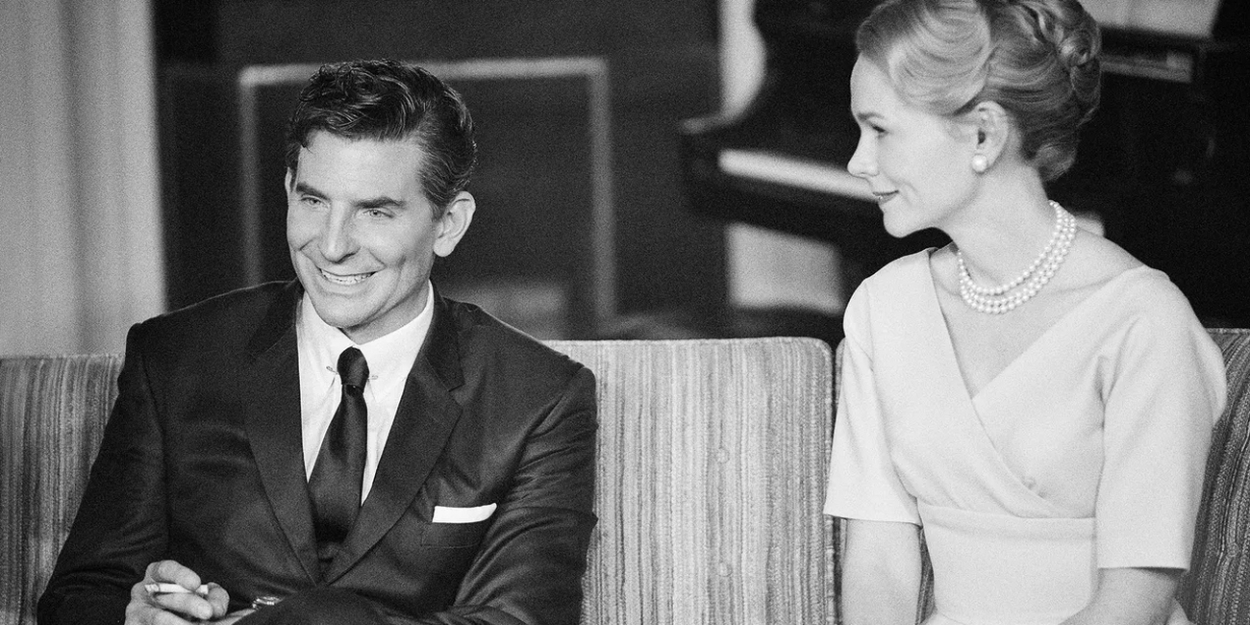Review: MAESTRO, in cinemas and streaming on Netflix
Bradley Cooper's biopic of Leonard Bernstein will please and infuriate viewers

 There’s a telling moment when the actors’ credits roll on Bradley Cooper’s Leonard Bernstein biopic, Maestro - Carey Mulligan’s is the first name we see. That’s right and proper too as this curious film is more about her part as Felicia Montealegre, TV and Broadway star in her own right, but here as the long-suffering Mrs Bernstein. She is the emotional centre of the movie, one of many curious artistic choices by Cooper, who co-wrote, co-produced, directed and starred, along with the now famous prosthetic nose. Somebody really should have said “No” a few times (as indeed they should have to Bernstein himself).
There’s a telling moment when the actors’ credits roll on Bradley Cooper’s Leonard Bernstein biopic, Maestro - Carey Mulligan’s is the first name we see. That’s right and proper too as this curious film is more about her part as Felicia Montealegre, TV and Broadway star in her own right, but here as the long-suffering Mrs Bernstein. She is the emotional centre of the movie, one of many curious artistic choices by Cooper, who co-wrote, co-produced, directed and starred, along with the now famous prosthetic nose. Somebody really should have said “No” a few times (as indeed they should have to Bernstein himself).
It’s been 25 years or so since I read Humphrey Burton’s magisterial biography of Bernstein detailing the life of the immigrant’s son who could have been anything he wanted to be (and often was) but carried a consequent nagging doubt that he could have been even more. Conductor, composer, pianist, educator, inspiration and, yes, let’s say it, genius, it’s not exactly a bland CV, but such an eclectic set of achievements comes at a reputational price. His champions in each field resented the time he spent in others and there’s a sledgehammer example of such sniping early in the narrative.
Little of that extraordinary fecundity, save an electric, Academy-baiting scene where Cooper goes full ‘Lenny’ sweatily conducting a symphony in a cathedral, filters through the movie’s point of view. Instead, much of the two hours running time concerns how a gay man, especially in post-war USA, felt compelled to live half in the closet and half out, and the inevitable impact of that double life on his family and himself. It’s not a unique story then nor, I venture, now and, particularly when cancer turns up (somewhat later than expected given the truly heroic consumption of cigarettes on display), it just goes a bit too generic to engage.
That said, many viewers (and I spoke to some after the lights went up who absolutely got this) will feel the delicious pull of the description ‘relatable’, fast-becoming the holy grail of media content. Mulligan brings us into her world, we feel her pain, those big doe eyes gazing into ours above a stiff upper lip until it can hold no more. She’s as good as anyone in these roles right now and she can expect award-season to be kind.
Cooper may not be treated so well. His performance is a little mannered, wearing the Bernstein wardrobe well, but never getting to the heart of what drove his intense creativity, his all but ADHD mind trapped in the ultra-disciplined worlds of concert orchestras and musical theatre, releasing only with a little tough love in his teaching. (It was sometimes tougher). There’s a handful of platitudinous lines about performance being public and composition being private, but he’s soon off to eye up the next bright young thing just in from San Francisco and the moment passes.
The photography is also hard to pin down, the camera often up very close alternating with shooting from such distance as to make us long lens voyeurs. There are no Broadway opening nights, no red carpet premieres, nothing much to tell us how or why Bernstein became such a towering figure of 20th century culture. Other characters are so sketchily written that one wonders how Sarah Silverman and Maya Hawke were tempted into such wafer-thin roles.
I suspect the film will divide viewers. Those who want to feel the trauma of imperfect lives collapsing under the weight of their own contradictions and society’s hypocrisy will be wrung out to their satisfaction. Those who want to find out what made one of music’s most remarkable figures so remarkable, will be none the wiser. A four star or two star film to taste - which is why it gets three.
Maestro is in cinemas now and streaming on Netflix from 20 December
Reader Reviews
Videos

